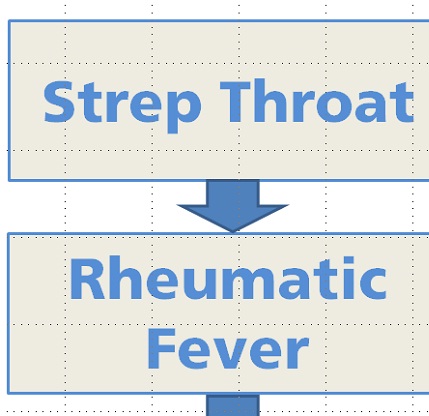Rheumatic Fever Symptoms, Causes, Complications, Diagnosis and Treatment

What Is Rheumatic Fever?
Basically, it is the inflammatory disease which occurs following an infection (for example scarlet fever or strep throat). The type of infection is known as streptococcal infection .Moreover, rheumatic fever can affect your brain, skin, joints and heart. The disease is also known as acute rheumatic fever.
What Are The Symptoms Of Rheumatic Fever?
Few common symptoms of rheumatic fever include:
- Skin nodules.
- Nosebleeds.
- Fever.
- Abdominal pain.
- Heart problems.
- Joint warmth,
- redness or swelling.
- Skin rash.
- Sydenham chorea.
- Arthritis/Joint pain.
When Is The Right Time To Get Evaluated By A Medical Professional?
In case you have developed the mentioned signs of rheumatic fever, then, you must not follow the wait-and-watch approach. Instead, get yourself immediately evaluated. Moreover, if the patient has signs of strep throat, then it is advice to visit the doctor and discuss the symptoms. By this, one can minimize the chances of contracting rheumatic fever in the following weeks.
What Causes Of Rheumatic Fever?
The disease is common around the globe. Rheumatic fever can result in damaging the heart valves. Commonly, it targets children between the ages of five and fifteen, whilst, develops around 2-4 weeks after scarlet fever or strep throat.
What Are The Possible Complications Of Rheumatic Fever?
Rheumatic fever can lead to a number of serious problems, these include:
- Sydenham chorea.
- Pericarditis.
- Heart failure.
- Endocarditis.
- Damage to your heart valves.
- Arrthymias.
How Is Rheumatic Fever Diagnosis?
The doctor will conduct a thorough physical examination of the patient, wherein he or she will check the joints, skin and heart sounds. The doctor can then suggest the following tests:
- Sedimentation rate (ESR).
- Electrocardiogram.
- Complete blood count.
- ASO test (blood test).
Some criteria have formed to standardize the diagnosis of rheumatic fever. A streptococcal infection (strep throat or scarlet fever) in the past few days, as well as meeting the formed criteria can verify the patient of having the disease. More specifically, these criteria are divided as minor and major:
Minor criteria consist of:
- Abdominal EKG.
- Joint pain.
High ESR.
Fever.
On the other hand, major criteria to diagnose rheumatic fever consist of:
- Skin rash (marginatum, erythema).
- Jerky, rapid movements (Sydenham chorea, chorea).
- Nodules under your skin.
- Heart inflammation.
- Polyarthritis.
How Is Rheumatic Fever Treatment?
In case the patient is suffering from this inflammatory disease, then the treatment will consist of antibiotics. More specifically, anti-inflammatory drugs for example corticosteroids or aspirin helps in easing inflammation. For avoiding strep throat to recur, the doctor can suggest low antibiotics doses to the patient for example erythromycin, sulfadiazine, or penicillin.
How Is Rheumatic Fever Preventable?
Yes, to a certain level, rheumatic fever is preventable. In case you have developed the symptoms of scarlet fever or strep throat, do not wait to consult your doctor. As mentioned earlier, prompt treatment can help minimize the risk of experiencing rheumatic fever in the following weeks.
By : Natural Health News




